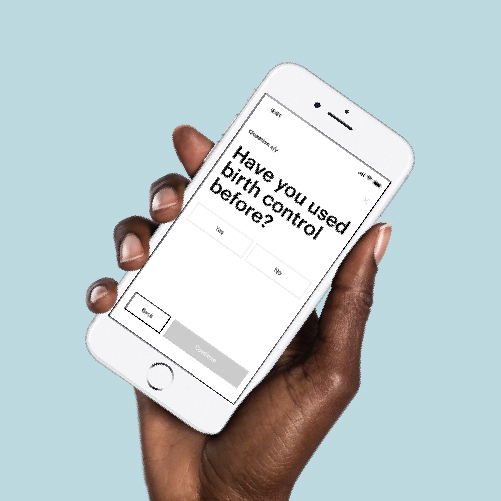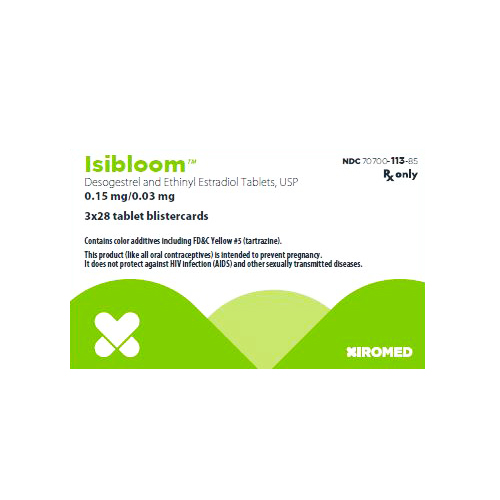If you prefer this specific medication, let your provider know the medication name and strength in the preference section of the health assessment.
Why Nurx?
-
 Free, fast shipping with automatic refills for items fulfilled by our pharmacy. Easily pause or cancel anytime.
Free, fast shipping with automatic refills for items fulfilled by our pharmacy. Easily pause or cancel anytime. -
 Clinically-recommended medications & affordable out-of-pocket prices.
Clinically-recommended medications & affordable out-of-pocket prices. -
 Unlimited messaging for one year with licensed providers.
Unlimited messaging for one year with licensed providers.
Product details
Take control of your reproductive health with Isibloom, a daily birth control pill that uses a combination of progestin and estrogen. We love Isibloom because, although it is used primarily to prevent pregnancy, women who take it may experience other benefits like lighter periods, lessened cramps, and better premenstrual symptoms.
Isibloom uses a 28-pill cycle to prevent pregnancy, with 21 active pills and seven placebo pills. The seven inactive pills serve as a daily reminder to take your birth control medication and allow your body to enjoy a break from the hormones it would otherwise receive.
Birth control type:
Combination birth control pill
Recommended for:
✓ Regulating periods
✓ Lighter periods
| Price with Insurance | Out-of-Pocket Price |
| As little as $0 for the medication | As little as $20 per month for the medication |
We also charge a $30 medication consultation, which includes unlimited access to our medical team for a full year.
Brand name:
Desogen
Generic versions:
Apri, Cyred, Emoquette, Enskyce, Juleber, Ortho-Cept, Reclipsen, Solia
To learn more about getting birth control from Nurx, click here.
Additional Details
FAQ


How It Works







